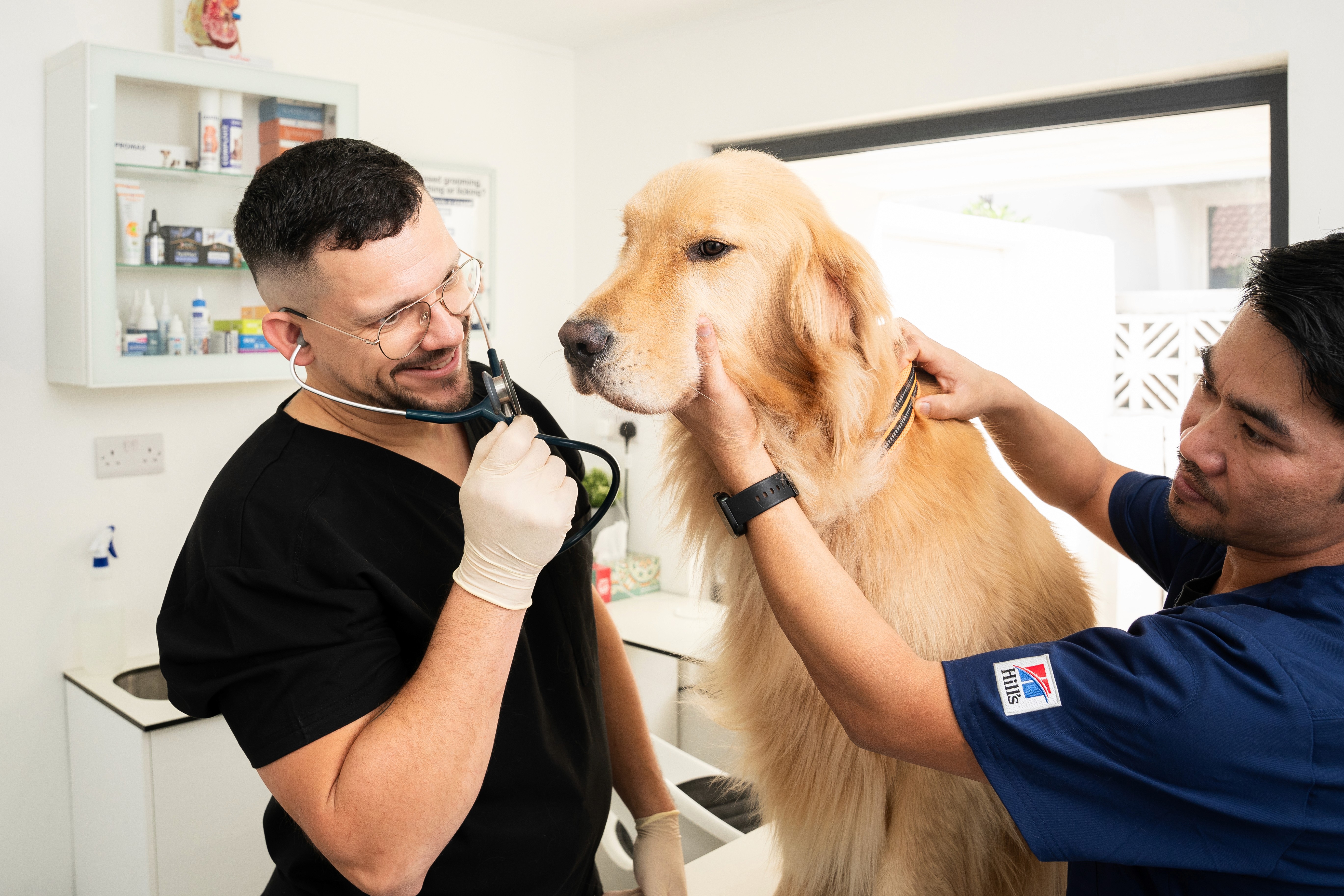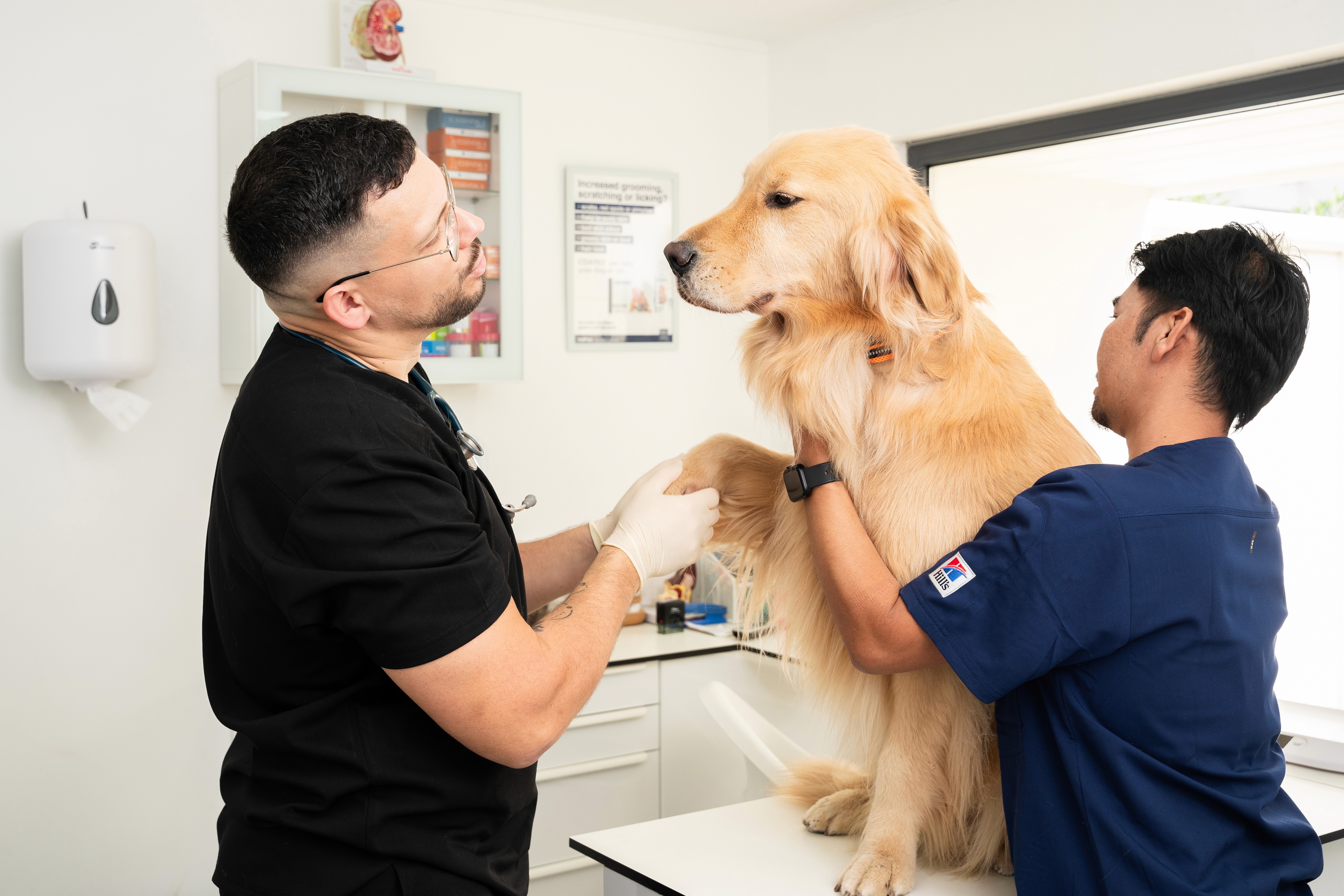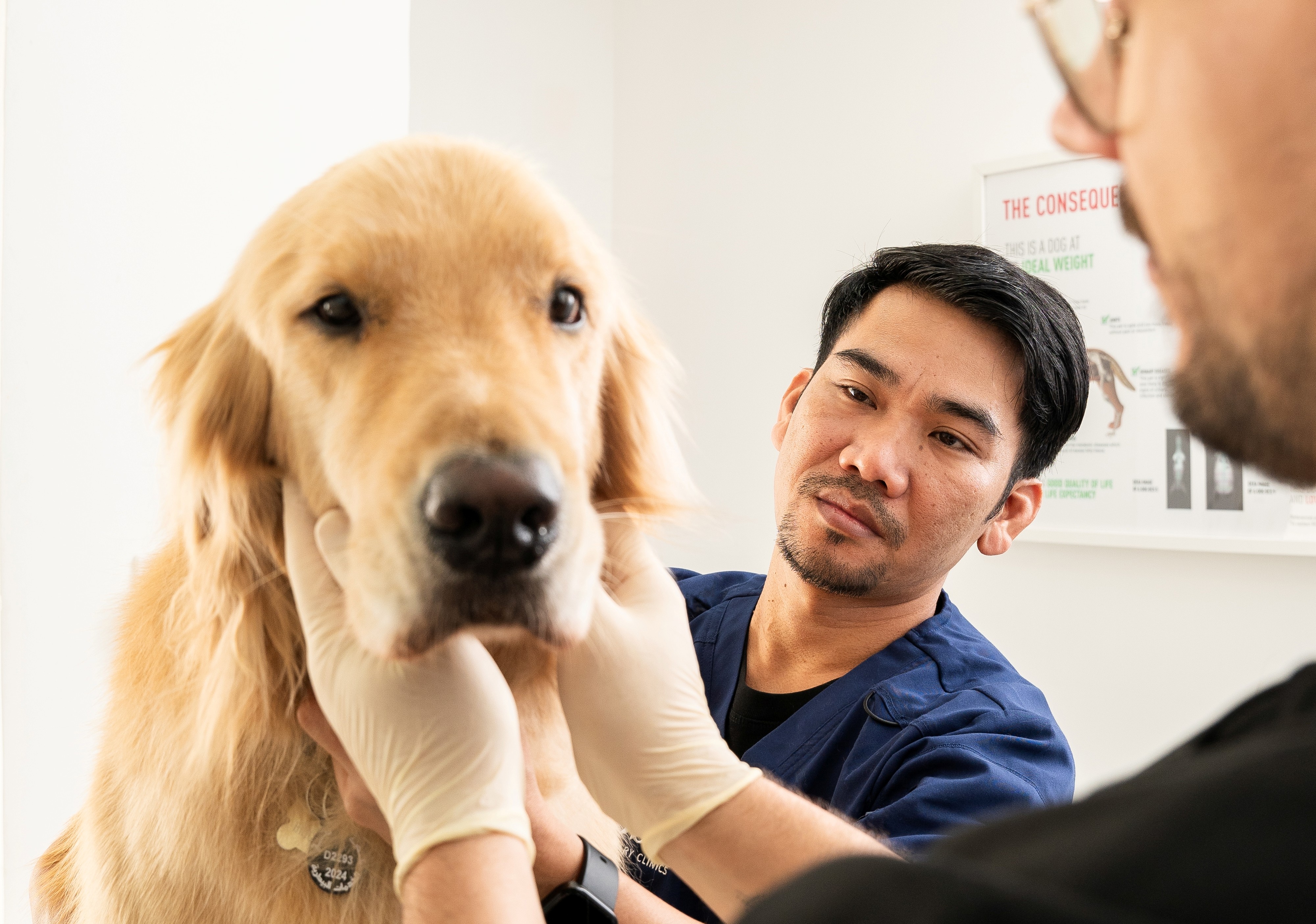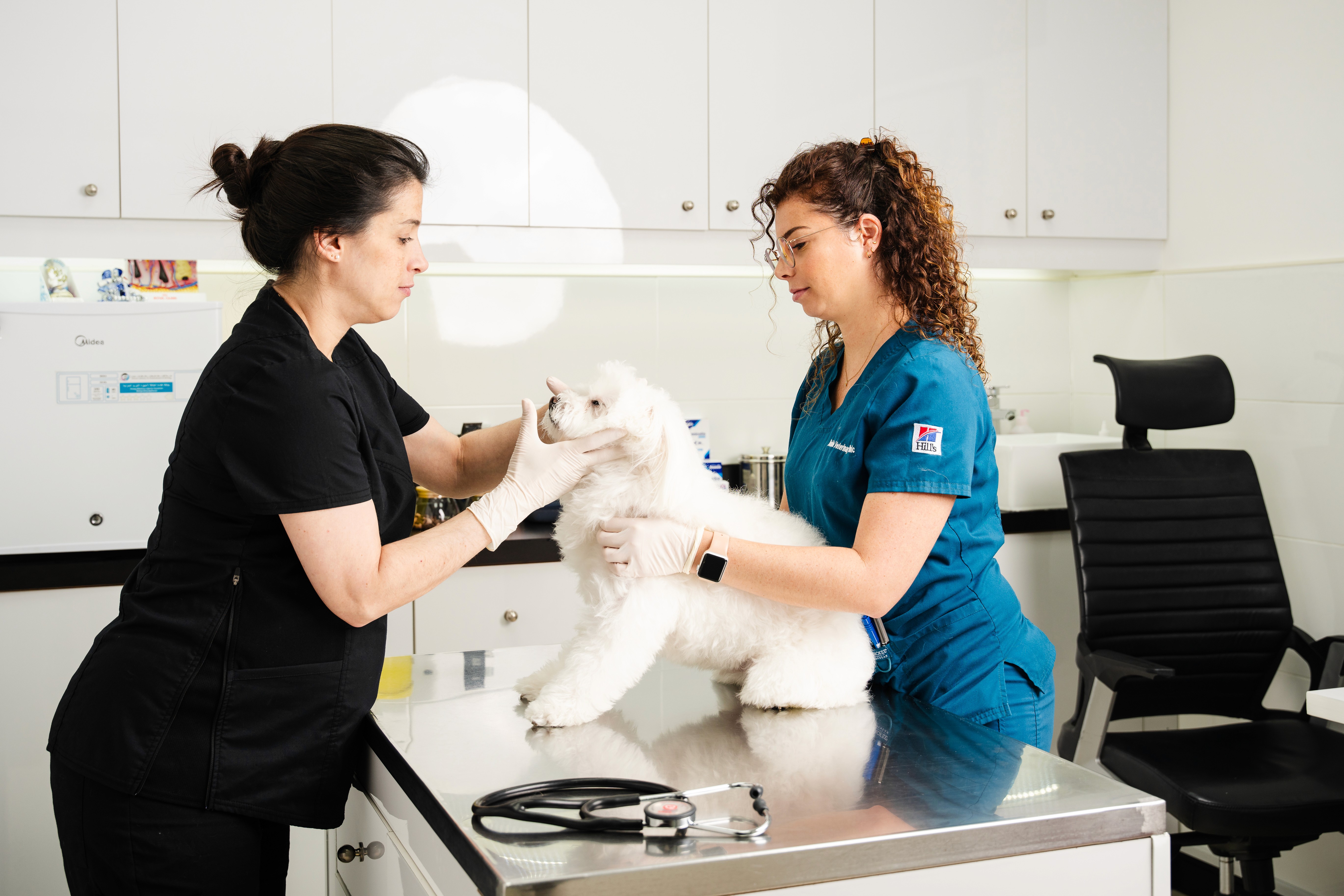15/01/2025
Dog diarrhea is a common issue that may be a minor inconvenience or a sign of a serious health problem. Your canine companion may appear healthy and active as usual while having diarrhea.
In this guide, we’ll help you understand the causes, recognize warning signs, and learn how to manage and prevent diarrhea in dogs.
Understanding Dog Diarrhea
Diarrhea in dogs can be characterized by loose or unformed stools that are excreted frequently. It’s not a disease but a symptom of an underlying problem.
Occasional diarrhea may sometimes be caused by an issue that’s not too concerning. However, frequent and severe cases of diarrhea could be a sign of a dangerous health problem in your dog.
Types of Dog Diarrhea
Diarrhea in dogs has several types, and knowing these can give you an idea about the causes. The three types of dog diarrhea are:
Acute Diarrhea – The sudden onset of loose stool, often caused by diet issues or mild infections.
Chronic Diarrhea – This type persists for weeks and can be caused by serious diseases in your dog.
Hemorrhagic Diarrhea – Loose stool accompanied by blood, requiring urgent vet care.
Understanding these dog diarrhea basics can help you provide accurate information to your vet during a consultation.
What Causes Diarrhea in Dogs?

Different factors and health issues can cause dog diarrhea. Sometimes, these problems can be caused by simple human food that your dog ate accidentally. In worst cases, diarrhea could be a sign of a severe disease.
Dietary Changes
One common issue that causes dog diarrhea is when pet owners suddenly change their pet’s diet. Changing dog food types and brands can cause stomach upset, so a gradual transition is recommended. In some cases, dogs accidentally ingest garbage, spoiled food, and table scraps. These may irritate their stomachs and cause diarrhea and other digestive issues.
Food Intolerance and Allergies
Like humans, dogs can have food allergies and intolerances. Their bodies can react poorly to certain foods like dairy, gluten, and proteins.
Infections
Bacterial, viral, or parasitic infections can also cause diarrhea. Parasites like roundworms and hookworms cause gastrointestinal problems. Dangerous bacteria such as salmonella and viruses like canine parvovirus may also have diarrhea as a symptom.
Toxins and Poisons
Another reason for dog diarrhea is toxins and poisonous substances. Toxic foods to dogs, including chocolate and onions, may cause severe diarrhea. You also need to be aware of poisonous substances in your home. If your dog comes into contact with them, they may not only experience diarrhea but also have fatal health issues. In these cases, you may need to seek immediate vet care.
Medications
When your pet takes medications, their digestion may react to them. Antibiotics may sometimes cause dog diarrhea, so it’s best to consult a veterinarian when this happens.
Stress and Anxiety
Stress and anxiety can also cause dog diarrhea. These causes can sometimes go unnoticed, so you must closely monitor your dog’s mood and behavior for any changes. Some events that may cause diarrhea in dogs include moving or relocation, vet visits, and separation anxiety. These sudden changes in your dog’s routine can lead to stress-induced diarrhea.
Chronic Conditions
One of the worst causes of dog diarrhea is a chronic health condition. Oftentimes, these problems can lead to serious, long-term health issues. Some conditions that cause chronic diarrhea include inflammatory bowel disease and pancreatic disorders.
When to Worry About Dog Diarrhea
A dog experiencing diarrhea is not always concerning. In some cases, it could just be a condition that does away on its own. However, there are signs you need to know when diarrhea becomes a serious concern.
You must bring your dog to the vet if:
Diarrhea lasts for over 24-48 hours
When you observe black, tarry, or bright red stools
Other symptoms accompany dog diarrhea, like vomiting, fever, lethargy, and stomach pain
Your dog shows signs of dehydration, like sunken eyes, dry gums, and skin that has lost elasticity
When you notice these signs, bring your dog to the vet clinic or contact emergency vet services as soon as possible. It’s essential that your dog gets immediate medical care to prevent any complications.
Diagnosing the Cause of Diarrhea in Dogs

When you bring your dog to the vet clinic, your veterinarian will use various diagnostic methods to determine the root cause of why your dog is experiencing diarrhea. Here’s what to expect when you bring your pet to the clinic.
Medical History
It’s crucial to monitor your dog’s condition. The information you share with your vet will help determine the cause of the diarrhea. You must share your dog’s medical history and any changes to their diet with your vet. If there is any chance your dog was exposed to toxins in your home or other pets outdoors, you must also inform your vet.
Physical Exam
Your vet will perform a thorough checkup on your dog for signs of dehydration, abdominal discomfort, or other symptoms to determine the cause of the diarrhea.
Fecal Analysis
A fecal analysis will help your vet determine if parasites or bacteria cause the dog's diarrhea. This test involves getting a stool sample from your dog to find the signs of parasite eggs.
Blood Work
Vets can also do blood tests to know if your dog’s organs are functioning correctly. The vet can tell if your dog has infections or inflammations with some blood samples.
Diagnostic Imaging
In some cases, your vet may recommend X-rays or ultrasounds because blockages or tumors can sometimes cause dog diarrhea.
Endoscopy and Biopsy
For complex cases, a veterinarian may request an endoscopy or biopsy. This method will need a tissue sample from the digestive tract to determine the cause of your dog’s diarrhea. Your vet may recommend any of these diagnostic techniques depending on your dog's clinical signs. These techniques are necessary because diarrhea is a symptom of many minor and severe canine diseases.
Dog Diarrhea Treatment Options
Once your veterinarian determines the cause of your dog’s diarrhea, they’ll create treatment plans to help your pet get through the illness. It will depend on the cause and severity of their condition.
Fasting
For some minor digestive issues, vets may suggest withholding food for 12 to 24 hours to give them time to recover. During fasting periods, make sure that your dog stays hydrated because it may lead to a worse health condition.
Bland Diet
After fasting, vets may recommend that you introduce easily digestible foods, which is often a bland diet. These foods may include boiled chicken, rice, and turkey.
Medications
Depending on your dog’s condition, the vet may administer certain medications to help treat their illness. For bacterial infections, vets will prescribe antibiotics. For parasitic infestations, deworming treatments may be recommended.
Hydration
Diarrhea in dogs may lead to dehydration, so your vet may recommend electrolyte solutions to help your pet stay hydrated while they get better. IV fluids may be given for severe conditions while the patient is hospitalized.
Probiotics
Probiotics can help restore your dog’s healthy gut bacteria to support fast recovery. They help maintain the balance of good bacteria in your dog’s digestive system to prevent diarrhea and other gastrointestinal issues.
Recovery and Prevention of Dog Diarrhea

When your vet has determined and treated the cause of your dog’s diarrhea, you must focus on their recovery and how to prevent this symptom from reoccurring. Here are some recovery and preventive tips for dog diarrhea.
When introducing new food to your dog, gradually introduce them to your pet. Slowly add the new dog food to their diet over a week-long period to prevent stomach issues and preventing dog diarrhea.
Some foods are not ideal for your dog’s body. Avoid giving your dog toxic food or table scraps, especially fatty and spicy foods.
Keep garbage, toxic plants, and household chemicals in secure storage spaces in your home. Ensure your dog cannot reach these items, which may cause diarrhea and fatal health issues.
Bringing your dog to the vet clinic for routine checkups can help catch potential health issues early. Your vet can determine if your dog needs any treatments to prevent health problems from worsening.
Sometimes, moving or relocation can’t be prevented, so your dog may experience stress that causes diarrhea. However, if your dog is experiencing stress in your home, you can try to maintain a calm environment.
Give space to rest and sleep. Regular exercise and mental stimulation are also crucial to minimizing stress and minimizing
Conclusion
We understand that dog diarrhea can be a concerning condition for pet owners. However, understanding the causes, recognizing severe accompanying symptoms, and taking preventive steps can improve your dog’s health.
Take your dog to the vet regularly to help detect and treat diseases early at the first sign of dog diarrhea. Remember that preventing illnesses is more ideal than having your dog go through various treatments.
Subscribe to Our
Newsletter
Sign up for weekly pet health tips and insights from our veterinarians.
